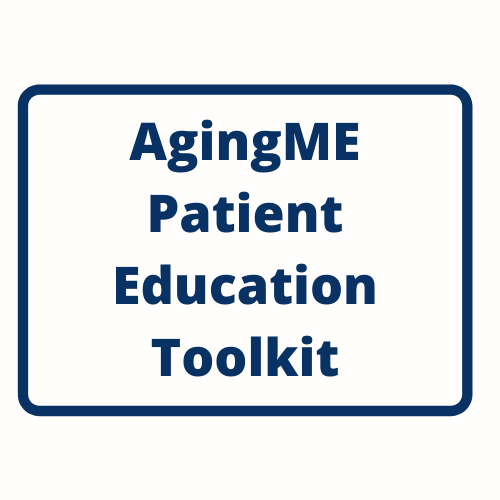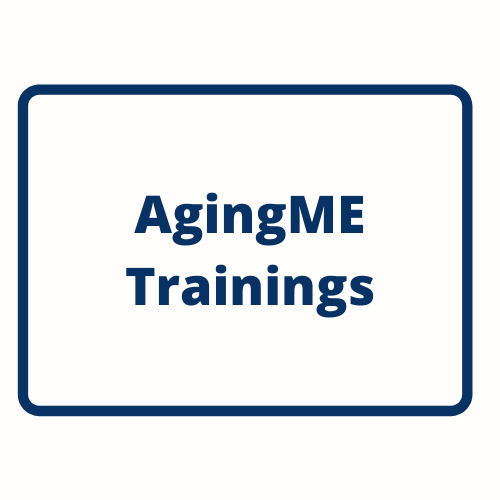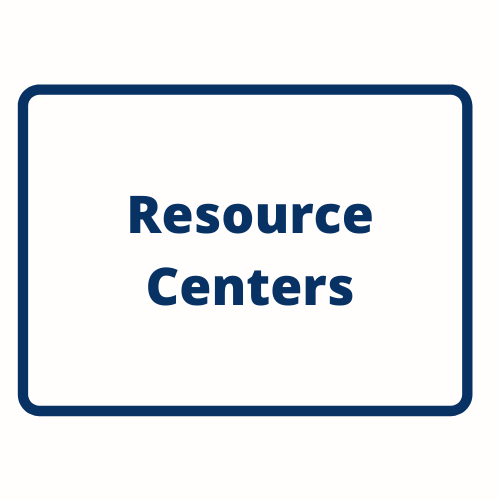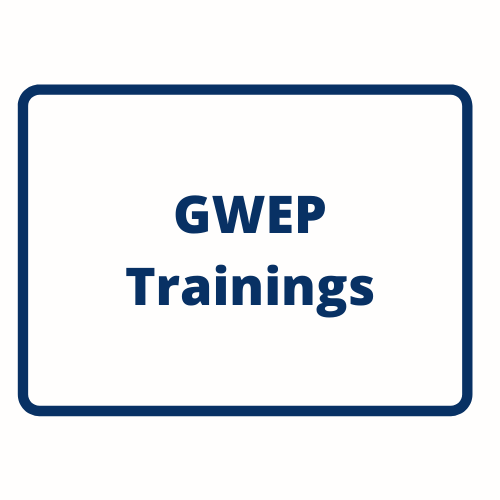Resources
AgingME curated this collection of resources from AgingME partners and the national Geriatrics Workforce Enhancement Program network. Choose one of the topics below to read more.
Presentations
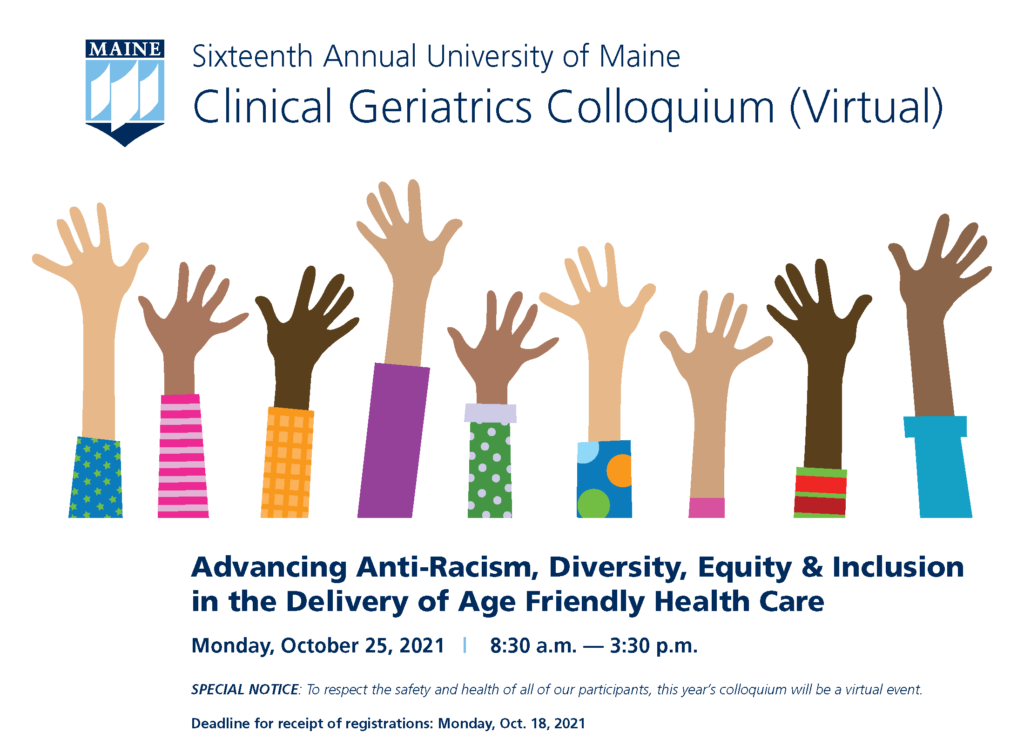
NOW AVAILABLE: Click here for videos and powerpoints of the presentations
Colloquium Objectives:
Participants will:
• Learn how to create health care workplaces committed to inclusion, equity, and belonging
• Understand the differential impact that the pandemic has had on minority older adult populations
• Describe the repercussions of exclusion and unconscious biases
• Apply frameworks and practical ways to value and appreciate human difference in the delivery of the health and human services
Age-Friendly Health and the 4Ms
Utah Geriatric Education Consortium Lecture from April 17, 2020

Ellen Flaherty, PhD, APRN, AGSF, Director of Dartmouth Centers for Health and Aging, joined us to delve into the topic of Age-Friendly Health Systems and the 4Ms. She gave an insightful presentation highlighting what the 4Ms of an Age-Friendly Health System are, what an Action Community is, the role the Northern New England GWEP has played in the Action Community, and how to use billable Medicare visits to help achieve status as an Age-Friendly Health System. She also helped us understand how we can apply the Age-Friendly Health System model to the community setting, not just in a large health system or acute care where it was created. She then answered questions from attendees about her presentation and experience in this field.
Click here to watch the recording
Management of Pain in Older Adults
Presented by USC Geriatrics Workforce Enhancement Program
Training will cover how to:
• Address issues in the 2016 opioid guidelines.
• Integrate Beers Criteria into the management of chronic pain in the older
adults.
• Assess the nuances of prescribing pain medication to older patients.
• Identify pain medication to avoid in older patients.
Click here to view the lecture
Geriatrics Workforce Enhancement Program Trainings
Stress First Aid for Long Term Care Staff
The Finger Lakes Geriatric Education Center is pleased to announce the launch of our latest free online educational module, Stress First Aid for Long Term Care Staff. We know that our longer term care settings have been disproportionately affected by COVID-19 with high rates of infection and mortality of vulnerable residents, while the direct care workforce in these settings have been the unsung heroes providing compassionate care in incredibly challenging circumstances. Our front-line workers deserve the best support and training in these challenging times.
Stress First Aid for Long-Term Care is a self-care and peer support model adapted specifically for long-term care health care personnel (CME and SW continuing education credits are available). It was developed in partnership by the University of Rochester Finger Lakes Geriatric Education Center, Ithaca College Gerontology Institute, and the National Center for PTSD.
Once an account is created, the course can be found in any of the catalogs (CME, SW or general).
Click here for more information
Reports & Periodicals
Anti-Ageism Guides from the Maine Council on Aging

Anti-Ageism Guide to Language: At home, in the town office, at work, and in all of your communications, language matters!
Anti-Ageism Guide to Action: Action items for individual, institutional, and systemic change.
The World Health Organization’s Global Report on Ageism
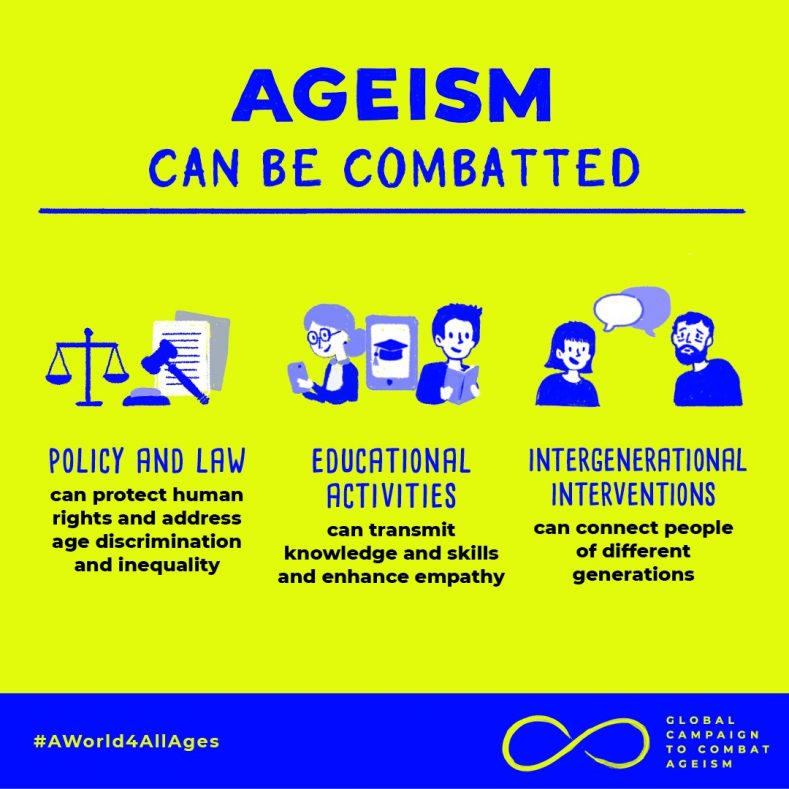
The Global report on ageism outlines a framework for action to reduce ageism including specific recommendations for different actors (e.g. government, UN agencies, civil society organizations, private sector). It brings together the best available evidence on the nature and magnitude of ageism, its determinants and its impact. It outlines what strategies work to prevent and counter ageism, identifies gaps and proposes future lines of research to improve our understanding of ageism.
Global Campaign to Combat Ageism – Toolkit
This toolkit was designed for the Global Campaign to Combat Ageism. It will equip you with the necessary resources to learn about ageism, initiate your own conversations about this important topic in your community, organize events to raise awareness, and spread the word through social media to create #AWorld4AllAges.
Integrating Palliative Care in Ambulatory Care of Noncancer Serious Chronic Illness
Report by the Evidence-based Practice Center Program at the Agency for Healthcare Research and Quality (AHQR)
Key findings include:
- A variety of resources exist, particularly for patient and caregiver education and clinician education and training, but few have been evaluated for effectiveness or implementation.
- Shared decision-making tools may increase patient satisfaction and advance directive documentation.
- The models evaluated for integrating palliative care may have little to no effect on reducing overall symptom burden and were not more effective than usual care for improving health-related quality of life or depressive symptom scores but were more effective for increasing advance directive documentation.
- Patients and caregivers prefer advance care planning discussions grounded in patient and caregiver experiences and individualized for timing.
AHRQ is a government agency tasked with producing evidence to improve the quality of healthcare while working with partners to ensure that the evidence is understood and used.
Age in Action Quarterly
Age in Action is a 20-page quarterly published jointly by the Virginia Center on Aging and the Virginia Department for Aging and Rehabilitative Services. Its target audience includes professionals in the field of aging, gerontologists, geriatricians, health professionals and administrators, adult home and community professionals, and others interested in aging-related education and research.
Race Towards a Cure: Alzheimer’s and an Ageing Population
Article on the state of Alzheimer’s research and treatment.
Resource Centers
SAMHSA Psychosocial Interventions for Older Adults with Serious Mental Illness
SAMHSA is pleased to announce the Psychosocial Interventions for Older Adults With Serious Mental Illness is posted on the SAMHSA Publications site. The guide provides considerations and strategies for interdisciplinary teams, peer specialists, clinicians, registered nurses, behavioral health organizations, and policy makers in understanding, selecting, and implementing evidence-based interventions that support older adults with serious mental illness.
Reframing Aging Initiative
The Reframing Aging Initiative is a long-term social change endeavor designed to improve the public’s understanding of what aging means and the many ways that older people contribute to our society. This greater understanding will counter ageism and guide our nation’s approach to ensuring supportive policies and programs for us all as we move through the life course.
Led by the nation’s leading aging organizations, the Reframing Aging Initiative is powered by research. We need you to become involved! Come learn how this initiative is engaging leaders like you, sharing tested communication tools, and teaching us all how to tell a new story. For more information about the initiative, visit us at www.reframingaging.org.
Multilingual Resources and Materials
The U.S. Department of Health and Humans Services (HHS) is committed to improving cultural competence and providing everyone equal access to quality care.
Providing culturally and linguistically appropriate services (CLAS) in health and healthcare is one way to improve the quality of services provided to all individuals, which will ultimately help reduce health disparities and achieve health equity. CLAS is about respect and responsiveness: respect the whole individual and respond to the individual’s health needs and preferences.
Learn more about CLAS and the National CLAS Standards.
Below are a few of the multilingual resources offered by HHS that you can access and share with your networks.
CEAL Research Team Tip Sheet
The NIH’s Community Engagement Alliance (CEAL) Against COVID-19 Disparities research teams around the country have developed tip sheets in English and Spanish to help address misinformation, highlight community benefits of COVID-19 research, outline the importance of community health workers, and advise on building community trust in COVID-19 resources. As they continue to develop tools and resources to combat the pandemic, reference these tip sheets to help build your community’s approach.

Addressing COVID-19 Misinformation: A Tip Sheet for Health Professionals Working with Community Members | English and Spanish
Community Benefits of COVID-19 Research: An Overview for Community Members | English and Spanish
Community Health Workers and Other Lay Communicators: An Overview for Researchers | English and Spanish
Building and Maintaining Community Trust in COVID-19 Resources | English and Spanish
Multilingual Resources and Materials for Medicare Providers
The HHS Office of Minority Health (OMH) has partnered with the Centers for Medicare & Medicaid Services (CMS) and other HHS agencies to identify and compile multilingual resources and materials for Medicare providers to assist them in providing culturally and linguistically appropriate services.
Translated resources include materials and information regarding specific diseases and conditions, health insurance, women’s health topics, substance use, emergency preparedness and response, and more. Download the file below to access translated resources and materials for Medicare providers.
CDC Multilingual Resources
The Centers for Disease Control and Prevention (CDC) has a suite of resources translated into other languages. Topics include emergency preparedness and response, diseases and conditions, data and statistics, environmental health, healthy living, injury, violence and safety, life stages and populations, travelers’ health, and workplace safety and health among others.
The information comes in various formats available for sharing and downloading. All of the resources are free to print and share. Additional resources are added periodically. Visit the page to access the latest information.
CDC Multilingual Communication Toolkit
The CDC created a communication toolkit to help public health professionals, health departments, community organizations, and healthcare systems and providers reach populations who may need COVID-19 prevention messaging in their native languages.
This toolkit provides:
- Current messaging from a trusted source.
- Information in plain language available for downloading and sharing.
- Translated materials to help communities disseminate messages to a wider audience.
FDA Multilingual COVID-19 Resources
The U.S. Food and Drug Administration (FDA) website has information on food safety, fraudulent products, coronavirus testing and treatments and other educational resources in a variety of languages. The translations are as faithful as possible to the English version, recognizing that the translated versions may not be as precise, clear, or complete as the English version.
How to Engage Patients and Families about Care through the End of Life
The Conversation Project: Advance Care Planning and End of Life conversations
National Institute on Aging Alzheimer’s Resource Center
National Institute on Aging developed Alzheimers.gov in collaboration with people living with dementia, caregivers, advocates, researchers, and others. The new, informative, easy-to-use, and empowering website aims to educate and support people whose lives are touched by Alzheimer’s disease and related dementias. The website serves as the federal government portal for dementia information and resources.
Explore the website to find:
- Information about Alzheimer’s disease and related dementias, including causes, symptoms, diagnosis, and treatment
- Tips and resources for caregivers and people living with dementia
- Updates on what the federal government is doing to address Alzheimer’s and related dementias
- Clinical trials and studies you can join to help advance ways to treat and prevent dementia
- Resources for health care providers, community and public health workers, and researchers
Healthy Aging Data Portal
The Alzheimer’s Disease and Healthy Aging Data Portal provides easy access to national and state level CDC data on a range of key indicators of health and well-being for older adults, including:
- Caregiving
- Subjective Cognitive Decline
- Screenings and vaccinations
- Mental health
These indicators provide a snapshot of currently available surveillance information, and can be useful for prioritization and evaluation of public health interventions.

